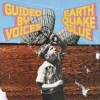 Bob Pollard may be a god to some, but lately there's been a strangedecline in the music he releases outside of Guided By Voices. Airport5's last was an errant mess, the Circus Devils' Harold Pig Memorialhad its moments but ultimately didn't satiate, and even the last GbVrecord was showing some cracks in the surface. Some were saying themost prolific man in rock was running out of steam finally, and thatthis marked the beginning of the end for Pollard and Co. This newrecord should easily choke all the naysayers. Earthquake Glue is the first great Guided By Voices album since Under the Bushes, Under the Starsand marks the real return of the band after their two album romp withTVT. Tighter, leaner, and more ready for action than anything on Universal Truths and Cycles,"My Kind of Soldier" kicks it off with bright guitars and classicPollard vocals. The production both sounds like it has taken a slighthit from the last record, which is just what most fans probably want,while it is improved in other areas; but this sound quality really doesserve these songs. "She Goes Off at Night" and "Useless Inventions"propel the album forward, and the keyboard and harmonica of "DirtyWater" show a new willingness to try something fresh. "I'll Replace YouWith Machines," though, is the real treat, the nugget that proves theboys are back. With its whip-cracking percussion and Doppler Effectmix, the urgency comes across in full force with the "I can't face you"chorus throwing in extra oomph. It's the Ghost of Christmas Past, andit's a pure joy to behold. Elsewhere, "The Best of Jill Hives" is barnone the best song GbV have ever written. The bass line grooves andundulates when Pollard joins, then the other band members come in oneby one. "I don't know how you find your nerve/I don't know how youchoose your words" sounds like the questions of a child to his/herfather after a harsh defeat. Pollard's voice warbles in its mild echo,and no one cares. It's classic GbV, it's got a great hook, and it endsbefore it becomes too commonplace. I admit it: I, too, had my doubtsabout the longevity of the band hearing the last album and EP. "They'vehad a great career, so maybe it would be a good time for them to hangit up, before it starts to get really bad." No more. There's miles leftin this sound yet.
Bob Pollard may be a god to some, but lately there's been a strangedecline in the music he releases outside of Guided By Voices. Airport5's last was an errant mess, the Circus Devils' Harold Pig Memorialhad its moments but ultimately didn't satiate, and even the last GbVrecord was showing some cracks in the surface. Some were saying themost prolific man in rock was running out of steam finally, and thatthis marked the beginning of the end for Pollard and Co. This newrecord should easily choke all the naysayers. Earthquake Glue is the first great Guided By Voices album since Under the Bushes, Under the Starsand marks the real return of the band after their two album romp withTVT. Tighter, leaner, and more ready for action than anything on Universal Truths and Cycles,"My Kind of Soldier" kicks it off with bright guitars and classicPollard vocals. The production both sounds like it has taken a slighthit from the last record, which is just what most fans probably want,while it is improved in other areas; but this sound quality really doesserve these songs. "She Goes Off at Night" and "Useless Inventions"propel the album forward, and the keyboard and harmonica of "DirtyWater" show a new willingness to try something fresh. "I'll Replace YouWith Machines," though, is the real treat, the nugget that proves theboys are back. With its whip-cracking percussion and Doppler Effectmix, the urgency comes across in full force with the "I can't face you"chorus throwing in extra oomph. It's the Ghost of Christmas Past, andit's a pure joy to behold. Elsewhere, "The Best of Jill Hives" is barnone the best song GbV have ever written. The bass line grooves andundulates when Pollard joins, then the other band members come in oneby one. "I don't know how you find your nerve/I don't know how youchoose your words" sounds like the questions of a child to his/herfather after a harsh defeat. Pollard's voice warbles in its mild echo,and no one cares. It's classic GbV, it's got a great hook, and it endsbefore it becomes too commonplace. I admit it: I, too, had my doubtsabout the longevity of the band hearing the last album and EP. "They'vehad a great career, so maybe it would be a good time for them to hangit up, before it starts to get really bad." No more. There's miles leftin this sound yet. Bob Pollard may be a god to some, but lately there's been a strangedecline in the music he releases outside of Guided By Voices. Airport5's last was an errant mess, the Circus Devils' Harold Pig Memorialhad its moments but ultimately didn't satiate, and even the last GbVrecord was showing some cracks in the surface. Some were saying themost prolific man in rock was running out of steam finally, and thatthis marked the beginning of the end for Pollard and Co. This newrecord should easily choke all the naysayers. Earthquake Glue is the first great Guided By Voices album since Under the Bushes, Under the Starsand marks the real return of the band after their two album romp withTVT. Tighter, leaner, and more ready for action than anything on Universal Truths and Cycles,"My Kind of Soldier" kicks it off with bright guitars and classicPollard vocals. The production both sounds like it has taken a slighthit from the last record, which is just what most fans probably want,while it is improved in other areas; but this sound quality really doesserve these songs. "She Goes Off at Night" and "Useless Inventions"propel the album forward, and the keyboard and harmonica of "DirtyWater" show a new willingness to try something fresh. "I'll Replace YouWith Machines," though, is the real treat, the nugget that proves theboys are back. With its whip-cracking percussion and Doppler Effectmix, the urgency comes across in full force with the "I can't face you"chorus throwing in extra oomph. It's the Ghost of Christmas Past, andit's a pure joy to behold. Elsewhere, "The Best of Jill Hives" is barnone the best song GbV have ever written. The bass line grooves andundulates when Pollard joins, then the other band members come in oneby one. "I don't know how you find your nerve/I don't know how youchoose your words" sounds like the questions of a child to his/herfather after a harsh defeat. Pollard's voice warbles in its mild echo,and no one cares. It's classic GbV, it's got a great hook, and it endsbefore it becomes too commonplace. I admit it: I, too, had my doubtsabout the longevity of the band hearing the last album and EP. "They'vehad a great career, so maybe it would be a good time for them to hangit up, before it starts to get really bad." No more. There's miles leftin this sound yet.
Bob Pollard may be a god to some, but lately there's been a strangedecline in the music he releases outside of Guided By Voices. Airport5's last was an errant mess, the Circus Devils' Harold Pig Memorialhad its moments but ultimately didn't satiate, and even the last GbVrecord was showing some cracks in the surface. Some were saying themost prolific man in rock was running out of steam finally, and thatthis marked the beginning of the end for Pollard and Co. This newrecord should easily choke all the naysayers. Earthquake Glue is the first great Guided By Voices album since Under the Bushes, Under the Starsand marks the real return of the band after their two album romp withTVT. Tighter, leaner, and more ready for action than anything on Universal Truths and Cycles,"My Kind of Soldier" kicks it off with bright guitars and classicPollard vocals. The production both sounds like it has taken a slighthit from the last record, which is just what most fans probably want,while it is improved in other areas; but this sound quality really doesserve these songs. "She Goes Off at Night" and "Useless Inventions"propel the album forward, and the keyboard and harmonica of "DirtyWater" show a new willingness to try something fresh. "I'll Replace YouWith Machines," though, is the real treat, the nugget that proves theboys are back. With its whip-cracking percussion and Doppler Effectmix, the urgency comes across in full force with the "I can't face you"chorus throwing in extra oomph. It's the Ghost of Christmas Past, andit's a pure joy to behold. Elsewhere, "The Best of Jill Hives" is barnone the best song GbV have ever written. The bass line grooves andundulates when Pollard joins, then the other band members come in oneby one. "I don't know how you find your nerve/I don't know how youchoose your words" sounds like the questions of a child to his/herfather after a harsh defeat. Pollard's voice warbles in its mild echo,and no one cares. It's classic GbV, it's got a great hook, and it endsbefore it becomes too commonplace. I admit it: I, too, had my doubtsabout the longevity of the band hearing the last album and EP. "They'vehad a great career, so maybe it would be a good time for them to hangit up, before it starts to get really bad." No more. There's miles leftin this sound yet.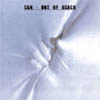 Germany's Can is certainly the most influential band to emerge from thefirst wave of krautrock. Their first six studio albums are unparalleledmasterpieces of experimental rock, effortlessly combining jazz andclassical influences with psychedelic guitar rock, ethnic percussionand unhinged vocal improvisations. The past few years have seen theentire back catalog re-mastered and re-released in deluxe CD and LPeditions on Can's own Spoon imprint. Every album, that is, except forthe much-maligned 1978 release Out of Reach,which Can seem eager to completely omit from their discography. Assuch, it has long remained one of their rarest and least talked aboutalbums. Fortunately for completists, Marginal Talent has now issued are-mastered CD of this most obscure of Can records. The received wisdomis that Can began to decline when Japanese vocalist Damo Suzukideparted to join a religious sect after 1976's Future Days.While this is somewhat accurate, hindsight has been kinder to thelater, more homogenized Can albums. We can now retrospectively admitthat Soon Over Babaluma and Flow Motion both containgreat moments, displaying the same ingenious instrumental fusion thatcharacterized Can's most fertile creative period. Record collector loredemands that Out of Reach be a similarly underrated, unsung gem. Unfortunately, this is just not the case. Out of Reach is one of Can's worst albums, and while it has its moments, it must be relegated to the same pile as Saw Delight and Inner Space- disappointing latter-day efforts that make convincing arguments thatCan should have retired earlier. The main reason for this drop inquality was most likely the departure of bassist Holger Czukay,founding member and innovator. To make up for Czukay's noticeableabsence, Rosko Gee and Reebob Kwaku-Baah of the execrable prog-rockband Traffic joined the line-up. Their influence is an unwelcome one,to put it mildly. Gee and Kwaku-Baah bring with them a penchant forpointless jazz-inflected solos that drone on endlessly, watering downthe usually explosive chemistry between Irmin Schmidt, Jaki Liebezeitand Michael Karoli. "Serpentine" introduces this incarnation of Can,with a mildly engaging marriage of ethnic instrumentals and elevatorjazz. The music is far from terrible, but compared to dynamicmasterpieces like Ege Bamyasi and Tago Mago, it'spositively snore-inducing. "Pauper's Daughter and I" is livelier, butis marred by the badly delivered nursery rhyme lyrics from Rosko Gee."November" is by far the best track on the album, the one song wherethe fuzz guitar really lets loose, and the rest of the band'simprovisations build a trippy, pitch-perfect backdrop for Karoli'samazing soloing. "Seven Days Awake" starts out on an interesting note,but soon declines into pointless repetition. "Give Me No 'Roses'"sounds like a bad Traffic outtake, as does the sub-par reggae of "LikeInobe God". The one-and-a-half minutes of "One More Day" is the album'stribal swansong. This is far from essential Can, even more troublingthan 1989's ill-advised reunion album Rite Time. If you are looking to collect every Can album, put Out of Reach right at the bottom of the list.
Germany's Can is certainly the most influential band to emerge from thefirst wave of krautrock. Their first six studio albums are unparalleledmasterpieces of experimental rock, effortlessly combining jazz andclassical influences with psychedelic guitar rock, ethnic percussionand unhinged vocal improvisations. The past few years have seen theentire back catalog re-mastered and re-released in deluxe CD and LPeditions on Can's own Spoon imprint. Every album, that is, except forthe much-maligned 1978 release Out of Reach,which Can seem eager to completely omit from their discography. Assuch, it has long remained one of their rarest and least talked aboutalbums. Fortunately for completists, Marginal Talent has now issued are-mastered CD of this most obscure of Can records. The received wisdomis that Can began to decline when Japanese vocalist Damo Suzukideparted to join a religious sect after 1976's Future Days.While this is somewhat accurate, hindsight has been kinder to thelater, more homogenized Can albums. We can now retrospectively admitthat Soon Over Babaluma and Flow Motion both containgreat moments, displaying the same ingenious instrumental fusion thatcharacterized Can's most fertile creative period. Record collector loredemands that Out of Reach be a similarly underrated, unsung gem. Unfortunately, this is just not the case. Out of Reach is one of Can's worst albums, and while it has its moments, it must be relegated to the same pile as Saw Delight and Inner Space- disappointing latter-day efforts that make convincing arguments thatCan should have retired earlier. The main reason for this drop inquality was most likely the departure of bassist Holger Czukay,founding member and innovator. To make up for Czukay's noticeableabsence, Rosko Gee and Reebob Kwaku-Baah of the execrable prog-rockband Traffic joined the line-up. Their influence is an unwelcome one,to put it mildly. Gee and Kwaku-Baah bring with them a penchant forpointless jazz-inflected solos that drone on endlessly, watering downthe usually explosive chemistry between Irmin Schmidt, Jaki Liebezeitand Michael Karoli. "Serpentine" introduces this incarnation of Can,with a mildly engaging marriage of ethnic instrumentals and elevatorjazz. The music is far from terrible, but compared to dynamicmasterpieces like Ege Bamyasi and Tago Mago, it'spositively snore-inducing. "Pauper's Daughter and I" is livelier, butis marred by the badly delivered nursery rhyme lyrics from Rosko Gee."November" is by far the best track on the album, the one song wherethe fuzz guitar really lets loose, and the rest of the band'simprovisations build a trippy, pitch-perfect backdrop for Karoli'samazing soloing. "Seven Days Awake" starts out on an interesting note,but soon declines into pointless repetition. "Give Me No 'Roses'"sounds like a bad Traffic outtake, as does the sub-par reggae of "LikeInobe God". The one-and-a-half minutes of "One More Day" is the album'stribal swansong. This is far from essential Can, even more troublingthan 1989's ill-advised reunion album Rite Time. If you are looking to collect every Can album, put Out of Reach right at the bottom of the list. Listening to Schniztler's solo recordings from the 70s is a mixed bagbut quite good fun in several ways. It's like a time capsule, for onething—a throw back to a particular genre of relentless sequencerpatterns, modal noodlings, phasers and filter sweeps. It has theessence of a personal musical identity that influenced the people whowent on to create that genre from it. But the sound on these solorecordings shows that what Schnitzler was able to do, given the timeand opportunity, went well beyond the daily fodder of that genre. Hecould dredge a harsh grittiness from the equipment as well as delicatefinesse that doesn't fit the nostalgic idea of that warm analog soundso fetishized in recent years. The abstract pieces without rhythms workbest. Schnitzler had quite an inventive talent for composing theseevolving layers of otherworldly sounds into science-fiction concertostoo menacing to be merely psychedelic. The curious tension between thefamiliar and the novel, even with an advantage of perspective nearing30 years, highlights the unusual breadth available on Schnitzler'spallet. Where things work less well is when that pallet is applied tocreating the kind of sequencer-driven rock music that others includingTangerine Dream did too much with in the same period. The mechanicalstructures are used as a basis for soloing that just shouldn't havebeen allowed to happen. Such banal melody in the solo lines was notexactly uncommon among the electronic bands of the time. For example,Edgar Froese could throw a crowd into a tizzy of excitement just bypicking up a guitar but, let's be honest, he was never very good atplaying it. It's the same problem here. Listening from the 21stcentaury, one wonders where the sci-fi connotations come from. Were thestyles appropriated for movies and other media to then becomeconventional symbols? Is it a trick of association with the zeitgeist?Or were musicians actually aiming at making space-age sound? Anyway,fans of Schnitzler's 70s solo oeuvre will welcome this addition to theset of color albums. At the very least I can say with certainty thatthe CD booklet represents a succinct response to the problem of what todo with such a ridiculously small page format.
Listening to Schniztler's solo recordings from the 70s is a mixed bagbut quite good fun in several ways. It's like a time capsule, for onething—a throw back to a particular genre of relentless sequencerpatterns, modal noodlings, phasers and filter sweeps. It has theessence of a personal musical identity that influenced the people whowent on to create that genre from it. But the sound on these solorecordings shows that what Schnitzler was able to do, given the timeand opportunity, went well beyond the daily fodder of that genre. Hecould dredge a harsh grittiness from the equipment as well as delicatefinesse that doesn't fit the nostalgic idea of that warm analog soundso fetishized in recent years. The abstract pieces without rhythms workbest. Schnitzler had quite an inventive talent for composing theseevolving layers of otherworldly sounds into science-fiction concertostoo menacing to be merely psychedelic. The curious tension between thefamiliar and the novel, even with an advantage of perspective nearing30 years, highlights the unusual breadth available on Schnitzler'spallet. Where things work less well is when that pallet is applied tocreating the kind of sequencer-driven rock music that others includingTangerine Dream did too much with in the same period. The mechanicalstructures are used as a basis for soloing that just shouldn't havebeen allowed to happen. Such banal melody in the solo lines was notexactly uncommon among the electronic bands of the time. For example,Edgar Froese could throw a crowd into a tizzy of excitement just bypicking up a guitar but, let's be honest, he was never very good atplaying it. It's the same problem here. Listening from the 21stcentaury, one wonders where the sci-fi connotations come from. Were thestyles appropriated for movies and other media to then becomeconventional symbols? Is it a trick of association with the zeitgeist?Or were musicians actually aiming at making space-age sound? Anyway,fans of Schnitzler's 70s solo oeuvre will welcome this addition to theset of color albums. At the very least I can say with certainty thatthe CD booklet represents a succinct response to the problem of what todo with such a ridiculously small page format.  Over three years after the release of their full-length debut, The Noise Made by People,Broadcast have returned full force with a truly exceptional follow-up.While staying true to their moody, late '60s psychedelia-influencedcore sound, the band opens up further to make their retro-basedstylings something that is truly all their own. Haha Sound isboth more playful and more experimental than its successor, evidencedin the opening track, "Colour Me In." Trish Keenan's vocals are sweetand girlish, offsetting the ghostly machinations and audible squeaks inthe background. Her vocals, however, are more often haunting andmelodic such as on "Before We Begin," "Man Is Not a Bird," and "OminousCloud," while on "Pendulum," the first single from the record, Trish'svoice sounds slightly emotionally detached. On "Minim," they cascadelike a hypnotic waterfall, and she turns "Valerie" into a lullabye. Thelyrics are full of rich, abstract imagery—like "If green is chasing thehills over miles / If blue is pursuing the sky" on "Colour Me In;" and"Shake your earrings over my head / Lay down your dreams on my pillowbefore bed" from "Valerie"—that suits Broadcast's music well.
Over three years after the release of their full-length debut, The Noise Made by People,Broadcast have returned full force with a truly exceptional follow-up.While staying true to their moody, late '60s psychedelia-influencedcore sound, the band opens up further to make their retro-basedstylings something that is truly all their own. Haha Sound isboth more playful and more experimental than its successor, evidencedin the opening track, "Colour Me In." Trish Keenan's vocals are sweetand girlish, offsetting the ghostly machinations and audible squeaks inthe background. Her vocals, however, are more often haunting andmelodic such as on "Before We Begin," "Man Is Not a Bird," and "OminousCloud," while on "Pendulum," the first single from the record, Trish'svoice sounds slightly emotionally detached. On "Minim," they cascadelike a hypnotic waterfall, and she turns "Valerie" into a lullabye. Thelyrics are full of rich, abstract imagery—like "If green is chasing thehills over miles / If blue is pursuing the sky" on "Colour Me In;" and"Shake your earrings over my head / Lay down your dreams on my pillowbefore bed" from "Valerie"—that suits Broadcast's music well.Percussion is without doubt a centerpiece of Haha Sound.The band's drummer Steve Perkins shines. Throughout he helps ground thefey electronics and balance out the airy vocals. The combination ofthese three has its greatest success on the song "Lunch Hour Pops,"which is possibly also one of the best tracks the band has everrecorded. Other outstanding titles on the record which demostrate agood blend of all the band's strengths include "Man Is Not a Bird,""Before We Begin," and "Winter Now." These are dotted with a handful ofshort instrumentals like "Black Umbrellas" and "DistORSION."
The overall ambience of Haha Soundis sweeping and spaceous. Although the instrumentation and pruductionis tight, the result is not one of preciousness or overbearance. Allthe songs feel like they have room to breathe, without being soextraneous as to need 70+ minutes for an album. Instead it clocks in ata compact 45 minutes. Although I am typically hesistant to attachsuperlatives when describing an album, I nevertheless must admit thatBroadcast has released what is hands down one of the finest albums ofthe year. It is undoubtably a remarkable achievement for the humblelittle band from Birmingham.
samples:
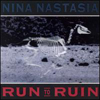 These songs make me into another person. I'm a criminal, then a scaredlittle boy, and the next minute I'm the loner walking through thedesert with a storm at my back. Nina Nastasia forces me to assume theseroles with her voice in my ear and her guitars cutting down at me likevicious slaps. One minute I'm in quiet solitude, hiding in a thicketand the next I'm being whipped around by a squall bursting withlightning and unexhaustable power. Run to Ruinis just that: powerful and excited. Nastasia's voice is absolutelyentrancing and the instrumentation is a fluid swarm of acousticstrumming, near-classical arrangements, and cabaret-styled,instrumental passages. "We Never Talked" starts the album as theperfect preface. Nastasia's lyrics are somewhat vague and manage toevoke a sense of wonder and mystery in every song, but especially onthe opener. "In the car, you'd have brought it up / But I went on aboutthat job / All the love I have left you won't know / All the fear Ihave left you won't know." The way it's sung puts a knot in my stomachevery time... and then the storm begins. "I Say That I Will Go" is astory about keeping a promise. It has a deliciously twisted ending thatsuggests all sorts of mischievousness. Violins, cellos, banjo,dulcimer, piano, and some distinctive drumming from Jim White of DirtyThree drift, collide, and wail with Nastasia's excellent story-tellingand clear, graceful, and at times absolutely earth-shattering voice.Though the album runs at just over thirty minutes long, each song isfull of character and developed completely. There's more variety on Run to Ruinthan on most albums that last twice as long. "The Body" begins like animitation-baroque piece and "On Teasing" sounds like a tale told bygypsies around camp fire; it features an instrumental duel that soundsas if it comes from the spirit world. "You Her and Me" creates a hybridsound that holds country and folk music dear to the heart but is muchmore bare and delicate. Despite all the acoustic and familiarinstruments used, this is a unique album with a myriad of styles andalien melodies. Every time I play this record, it's like beingtransported to another world. Not one song is disposable and after thealbum stops, I have this incredible urge to play it again just so I candrift away.
These songs make me into another person. I'm a criminal, then a scaredlittle boy, and the next minute I'm the loner walking through thedesert with a storm at my back. Nina Nastasia forces me to assume theseroles with her voice in my ear and her guitars cutting down at me likevicious slaps. One minute I'm in quiet solitude, hiding in a thicketand the next I'm being whipped around by a squall bursting withlightning and unexhaustable power. Run to Ruinis just that: powerful and excited. Nastasia's voice is absolutelyentrancing and the instrumentation is a fluid swarm of acousticstrumming, near-classical arrangements, and cabaret-styled,instrumental passages. "We Never Talked" starts the album as theperfect preface. Nastasia's lyrics are somewhat vague and manage toevoke a sense of wonder and mystery in every song, but especially onthe opener. "In the car, you'd have brought it up / But I went on aboutthat job / All the love I have left you won't know / All the fear Ihave left you won't know." The way it's sung puts a knot in my stomachevery time... and then the storm begins. "I Say That I Will Go" is astory about keeping a promise. It has a deliciously twisted ending thatsuggests all sorts of mischievousness. Violins, cellos, banjo,dulcimer, piano, and some distinctive drumming from Jim White of DirtyThree drift, collide, and wail with Nastasia's excellent story-tellingand clear, graceful, and at times absolutely earth-shattering voice.Though the album runs at just over thirty minutes long, each song isfull of character and developed completely. There's more variety on Run to Ruinthan on most albums that last twice as long. "The Body" begins like animitation-baroque piece and "On Teasing" sounds like a tale told bygypsies around camp fire; it features an instrumental duel that soundsas if it comes from the spirit world. "You Her and Me" creates a hybridsound that holds country and folk music dear to the heart but is muchmore bare and delicate. Despite all the acoustic and familiarinstruments used, this is a unique album with a myriad of styles andalien melodies. Every time I play this record, it's like beingtransported to another world. Not one song is disposable and after thealbum stops, I have this incredible urge to play it again just so I candrift away.samples:
 Austrian-born Rancho Relaxo All Stars collaborator Susanne Brokesch isan electronic-based sound artist whose work has resulted in variousoutputs such as group art shows, soundtrack work and several recordingsunder her own name as well as the pseudonyms of Sil and SilElectronics. Her latest release, So Easy, Hard To Practice,is mostly a collection of various soundscapes and minimalist-typecompositions where, at times, the rhythms are implied more thanoutright stated. What I found to be interesting about this disc isBrokesch's arrangement of synthetic sound patches, which at timesconvey a somewhat organic feel. The mild pulsing of "Confidence" laysbeneath a wash of obscure drones and sci-fi movie lasergun blast soundswith the occasional squelch until sparse, linear drum machine patternsmove in to take the track out. "Bel Air Mix 1" is a nice and subtleblend of reverbed synthesizer chords and heaving electro-cello over topof quiet, swinging drum machine tom-tom and snare hits which fade inand out throughout the mix. Rounding out the disc's forty minutes isthe somewhat out of place and longest track, aptly titled "Dancing."The mid-tempo programmed rhythms and syncopated bass end thump awayagainst a backdrop of flitting, somewhat harsh treated synths and othernear-industrial type sounds. The introduction of electro percussion andhandclaps add to the dance elements which are already very prominent.Although too fractured to be considered an ambient-type disc andgenerally lacking a steady pulse for head nodding, the interesting makeup of So Easy, Hard To Practice finds a fair middle ground that had me following the shifts without it being too obvious.
Austrian-born Rancho Relaxo All Stars collaborator Susanne Brokesch isan electronic-based sound artist whose work has resulted in variousoutputs such as group art shows, soundtrack work and several recordingsunder her own name as well as the pseudonyms of Sil and SilElectronics. Her latest release, So Easy, Hard To Practice,is mostly a collection of various soundscapes and minimalist-typecompositions where, at times, the rhythms are implied more thanoutright stated. What I found to be interesting about this disc isBrokesch's arrangement of synthetic sound patches, which at timesconvey a somewhat organic feel. The mild pulsing of "Confidence" laysbeneath a wash of obscure drones and sci-fi movie lasergun blast soundswith the occasional squelch until sparse, linear drum machine patternsmove in to take the track out. "Bel Air Mix 1" is a nice and subtleblend of reverbed synthesizer chords and heaving electro-cello over topof quiet, swinging drum machine tom-tom and snare hits which fade inand out throughout the mix. Rounding out the disc's forty minutes isthe somewhat out of place and longest track, aptly titled "Dancing."The mid-tempo programmed rhythms and syncopated bass end thump awayagainst a backdrop of flitting, somewhat harsh treated synths and othernear-industrial type sounds. The introduction of electro percussion andhandclaps add to the dance elements which are already very prominent.Although too fractured to be considered an ambient-type disc andgenerally lacking a steady pulse for head nodding, the interesting makeup of So Easy, Hard To Practice finds a fair middle ground that had me following the shifts without it being too obvious.samples:
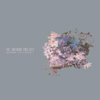 The title of this album leads one to wonder if it is in a way, a slyindictment of certain purveyors of experimental, progressive, orpost-rock music that they themselves are one of. Are they trying to saythat perhaps these genres are somewhat more susceptible toself-indulgence at the expense of entertainment? In any case, themembers of the Swords Project are at least saying that we have a choicein the matter and in that spirit they seize control of their musicaldestiny presenting an album that is both complex and enjoyable. Theirmusic has a shimmering, buoyant quality that wraps around itself in adizzying assemblage of layers. "City Life" is a veritable möbius strip,beginning with the faint, choppy voice of vocalist seeping through apastiche of programmed train-chugging drumbeats, static, and electronicmanipulation. The beats soon crackle into live drums and a flickeringmelody begins to unfold, floating without an anchor in the musicsurrounding it, like catching faint sight of a porch light through athicket of trees. It sounds as if the core of the song is bursting fromwithin with only enough energy to fall back into itself and repeat thesame process once again, leaving behind a mesmerizing vapor trail as itsinks back to earth. "MD11" reveals a cleaner sound, moving swiftly andbuilding off of a single melodic idea throughout the song. It seemslike more of a rock song than the tracks that precede even as itbriefly delves into a stutter-glitch bridge. "Cocktails andShuttlecocks" continues in this vein, though it progresses in a moresubdued shoegazer style, utilizing a violin for dramatic effect amidstthe warm bass lines and gentle melody. "Audience of One" takes theatmosphere of that previous track and expands upon it instrumentally,and by using minimal whispered vocals the band allows the violin totake the forefront in what makes for a really impressive long piece.They balance space and dynamics extremely well, building tension andtaking the music through peaks and valleys that make the track a truestandout. "Immigracion" presents itself as a rather standard indie rocksong, perhaps more in the vein of Death Cab for Cutie than any of thereferences the band itself might name check. By this point in thealbum, it seems like the collage aspects presented in "City Life" havebeen altogether abandoned, and that is a shame, but what remains isstill an interesting collection of songs that have a knack for melodyplayed by a band in perfect harmony with one another. The SwordsProject closes with "New Shapes," a long, droning track thatincorporates some elements of their earlier flair, but never commits tothe sound fully. The song is slow to develop, but with patience thefinal minutes take off into a propulsive workout. Throughout the album,the percussion is a major highlight. It fits each compositionperfectly, knowing the right time to sit back and let the rest of theband squall along and when to push through the din to give the piece alittle extra oomph. Entertainment is Over if You Want Itseems to lean away from the more brazen attempts at experimentation ofit's contemporaries, instead bringing these elements into the music inbrief spurts or bursts. At its core is just good music, approached witha sense of what makes for a compelling and enjoyable listen.
The title of this album leads one to wonder if it is in a way, a slyindictment of certain purveyors of experimental, progressive, orpost-rock music that they themselves are one of. Are they trying to saythat perhaps these genres are somewhat more susceptible toself-indulgence at the expense of entertainment? In any case, themembers of the Swords Project are at least saying that we have a choicein the matter and in that spirit they seize control of their musicaldestiny presenting an album that is both complex and enjoyable. Theirmusic has a shimmering, buoyant quality that wraps around itself in adizzying assemblage of layers. "City Life" is a veritable möbius strip,beginning with the faint, choppy voice of vocalist seeping through apastiche of programmed train-chugging drumbeats, static, and electronicmanipulation. The beats soon crackle into live drums and a flickeringmelody begins to unfold, floating without an anchor in the musicsurrounding it, like catching faint sight of a porch light through athicket of trees. It sounds as if the core of the song is bursting fromwithin with only enough energy to fall back into itself and repeat thesame process once again, leaving behind a mesmerizing vapor trail as itsinks back to earth. "MD11" reveals a cleaner sound, moving swiftly andbuilding off of a single melodic idea throughout the song. It seemslike more of a rock song than the tracks that precede even as itbriefly delves into a stutter-glitch bridge. "Cocktails andShuttlecocks" continues in this vein, though it progresses in a moresubdued shoegazer style, utilizing a violin for dramatic effect amidstthe warm bass lines and gentle melody. "Audience of One" takes theatmosphere of that previous track and expands upon it instrumentally,and by using minimal whispered vocals the band allows the violin totake the forefront in what makes for a really impressive long piece.They balance space and dynamics extremely well, building tension andtaking the music through peaks and valleys that make the track a truestandout. "Immigracion" presents itself as a rather standard indie rocksong, perhaps more in the vein of Death Cab for Cutie than any of thereferences the band itself might name check. By this point in thealbum, it seems like the collage aspects presented in "City Life" havebeen altogether abandoned, and that is a shame, but what remains isstill an interesting collection of songs that have a knack for melodyplayed by a band in perfect harmony with one another. The SwordsProject closes with "New Shapes," a long, droning track thatincorporates some elements of their earlier flair, but never commits tothe sound fully. The song is slow to develop, but with patience thefinal minutes take off into a propulsive workout. Throughout the album,the percussion is a major highlight. It fits each compositionperfectly, knowing the right time to sit back and let the rest of theband squall along and when to push through the din to give the piece alittle extra oomph. Entertainment is Over if You Want Itseems to lean away from the more brazen attempts at experimentation ofit's contemporaries, instead bringing these elements into the music inbrief spurts or bursts. At its core is just good music, approached witha sense of what makes for a compelling and enjoyable listen.samples:
 Greg Davis has spent the past few years finding the perfect crossbetween the real and the artificial, manufacturing music that is parttraditional instrumentation, part electronic samplings. Precursorsis presumably named for the fact that these songs precede his newalbum, and offer hints to the songs he's been working on. The frequenttourmate of Hrvatski has apparently unearthed something heretoforeuncharted within himself, as these songs represent a marked departurefrom his usual style, and also a less organized vision. Where beforeDavis would use acoustic guitars and electronic percussion to create arelaxed mood, "Lightning Proves to be Unnecessary" opens with an almostcacophonous display of noise. Organs are melded to electronic scratchesand other noises that build and grow to what seems like a forcedclimax. Then silence. Farm noises fill the air next, as a rooster crowsand birds can be heard in the distance. It's the battle, the anger, theblood and bone crushes, and then suddenly elysium. Acoustic guitar andorgans play out a funeral march or fitting tribute to a fallen comrade.Although the melody grows monotonous over the brief length of thetrack, there is a beauty to it all that warms the heart nonetheless. Onthe flipside is more percussion-less music from Davis, with clarinet,melodica, Rhodes piano, and guitar forming a simple yet swellingprogression. Eventually more instruments are added, creating a jarringstutter with instruments playing on the up and down beats.Full-sounding while delicate, the track never progesses much past that,but luckily it never threatens or promises to. It's all veryminimalist, and a new start for Davis, one that should hopefully seemore complicated structures come to fruition. This is just a taste, anda good one at that.
Greg Davis has spent the past few years finding the perfect crossbetween the real and the artificial, manufacturing music that is parttraditional instrumentation, part electronic samplings. Precursorsis presumably named for the fact that these songs precede his newalbum, and offer hints to the songs he's been working on. The frequenttourmate of Hrvatski has apparently unearthed something heretoforeuncharted within himself, as these songs represent a marked departurefrom his usual style, and also a less organized vision. Where beforeDavis would use acoustic guitars and electronic percussion to create arelaxed mood, "Lightning Proves to be Unnecessary" opens with an almostcacophonous display of noise. Organs are melded to electronic scratchesand other noises that build and grow to what seems like a forcedclimax. Then silence. Farm noises fill the air next, as a rooster crowsand birds can be heard in the distance. It's the battle, the anger, theblood and bone crushes, and then suddenly elysium. Acoustic guitar andorgans play out a funeral march or fitting tribute to a fallen comrade.Although the melody grows monotonous over the brief length of thetrack, there is a beauty to it all that warms the heart nonetheless. Onthe flipside is more percussion-less music from Davis, with clarinet,melodica, Rhodes piano, and guitar forming a simple yet swellingprogression. Eventually more instruments are added, creating a jarringstutter with instruments playing on the up and down beats.Full-sounding while delicate, the track never progesses much past that,but luckily it never threatens or promises to. It's all veryminimalist, and a new start for Davis, one that should hopefully seemore complicated structures come to fruition. This is just a taste, anda good one at that.samples:
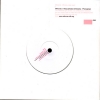 The second single in the Safe as Milk/Melektronikk collaborativeMilkland series brings together two subjects that couldn't be moreopposite from each other, and that seems to be part of the point. Safeas Milk is a Norwegian label that releases acts more rock in nature,while its sister label Melektronikk specializes in acts that areexperimental electronic; so any collaboration between the two will havemixed effects on the psyche, as this one does in spades. Milkland 2features Vibracathedral Orchestra, whose music easily reminds me ofasylums. Not the patients, mind you, because I think this music woulddrive them even more over the edge if they heard it; but I clearly feelthe waiting rooms and observation stations where you can actually seethe afflicted in this music. I imagined an entire dance troupe ofloonies, or as I called them the Psychotic Conservatory, flailingaround in anger, sitting in the middle of the floor chanting nonsense,and crying while jumping up and down. "Rain Gutter Teasing Rusty CatSneezing" is an amalgam of instruments and sounds that is not easilydigested or understood, and although I found it at the same timeinteresting and unnerving, it made me want to listen to their atonaldrone more. Phonophani, on the other hand, a side project of Alogmember Espen Sommer Eide, is manic noise of a far different sort. Beepsand bloops are the main percussion of "Bees - They Will Sting You" fora few seconds, then layer upon layer of flourish and glitch are addedon top, compelling the rhythm and tone into some bizarre roboticchoreography. Eventually, it seems as though the machines are acting ontheir own accord, no longer caring or paying attention to what thehuman programming them is asking or wants. Wonderfully creative musicfrom both artists, even though it makes me ponder whether either has ascrew or two loose.
The second single in the Safe as Milk/Melektronikk collaborativeMilkland series brings together two subjects that couldn't be moreopposite from each other, and that seems to be part of the point. Safeas Milk is a Norwegian label that releases acts more rock in nature,while its sister label Melektronikk specializes in acts that areexperimental electronic; so any collaboration between the two will havemixed effects on the psyche, as this one does in spades. Milkland 2features Vibracathedral Orchestra, whose music easily reminds me ofasylums. Not the patients, mind you, because I think this music woulddrive them even more over the edge if they heard it; but I clearly feelthe waiting rooms and observation stations where you can actually seethe afflicted in this music. I imagined an entire dance troupe ofloonies, or as I called them the Psychotic Conservatory, flailingaround in anger, sitting in the middle of the floor chanting nonsense,and crying while jumping up and down. "Rain Gutter Teasing Rusty CatSneezing" is an amalgam of instruments and sounds that is not easilydigested or understood, and although I found it at the same timeinteresting and unnerving, it made me want to listen to their atonaldrone more. Phonophani, on the other hand, a side project of Alogmember Espen Sommer Eide, is manic noise of a far different sort. Beepsand bloops are the main percussion of "Bees - They Will Sting You" fora few seconds, then layer upon layer of flourish and glitch are addedon top, compelling the rhythm and tone into some bizarre roboticchoreography. Eventually, it seems as though the machines are acting ontheir own accord, no longer caring or paying attention to what thehuman programming them is asking or wants. Wonderfully creative musicfrom both artists, even though it makes me ponder whether either has ascrew or two loose.samples:
- Vibracathedral Orchestra - Rain Gutter Teasing Rusty Cat Sneezing
- Phonophani - Bees - They Will Sting You
 Smyglyssna is Henrik Johansson, a Swedish electronic musician who isdesperately hoping that the music-buying public will be able todistinguish the music on his new album We Can Fix Itfrom that of his numerous European contemporaries. Perhaps I don'tpossess an ear properly tuned towards these subtle distinctions, but itseems that Johansson has produced an album that is more or less wearingthe IDM uniform: a postmodern combination of beats lifted from the past20 years of electronic music, processed and edited within an inch ofits life with the kind of surgical precision only possible with anexpensive new Powerbook. The nine tracks add up to something slightlybetter than average, but slightly less than great. "Might-It-Be's andIf-It-Were's" opens with some creepy alien sound washes, before Mr.Johansson introduces his limited sound palette, which involves CarlCraig-style Detroit electro with all booty-shaking potential carefullyremoved and replaced with a dry, academic contempt for accessibility.It bears more than a passing resemblance to earlier IDM such as BlackDog Productions, with its shifting patterns and cubist beatconstruction. It all comes together nicely, and even achieves somegenuinely funky moments, but I can't help feeling that this kind ofthing was a bit more compelling five years ago. For its entiresix-minute length, "Work Shall Be Abolished" threatens to turn into afull-on electro-funk song, but Johansson is too restrained to engage inanything that might be construed as fun. "Triangular Ears" is probablythe best track on the album, as it is the one time Johansson fullyabsorbs the listener in his infectious beat construction, with funny,eclectic sounds that are reminiscent of Mouse on Mars. The ugly loomingspectre of Boards of Canada haunts most modern electronic artists, andmany seem afraid to venture out of their shadow. Smyglyssna is noexception, with his obvious BoC pastiche "Foaming Prairie," a pastoralkeyboard melody matched with hazy distortions. The R&B flavored"Tea With Angela" finishes the album on a slightly messy note. Ibelieve there is hope for Smyglyssna, if he can somehow manage toremove his head from the collective ass of the European IDMcommunity and make something that sounds a little less like everythingelse.
Smyglyssna is Henrik Johansson, a Swedish electronic musician who isdesperately hoping that the music-buying public will be able todistinguish the music on his new album We Can Fix Itfrom that of his numerous European contemporaries. Perhaps I don'tpossess an ear properly tuned towards these subtle distinctions, but itseems that Johansson has produced an album that is more or less wearingthe IDM uniform: a postmodern combination of beats lifted from the past20 years of electronic music, processed and edited within an inch ofits life with the kind of surgical precision only possible with anexpensive new Powerbook. The nine tracks add up to something slightlybetter than average, but slightly less than great. "Might-It-Be's andIf-It-Were's" opens with some creepy alien sound washes, before Mr.Johansson introduces his limited sound palette, which involves CarlCraig-style Detroit electro with all booty-shaking potential carefullyremoved and replaced with a dry, academic contempt for accessibility.It bears more than a passing resemblance to earlier IDM such as BlackDog Productions, with its shifting patterns and cubist beatconstruction. It all comes together nicely, and even achieves somegenuinely funky moments, but I can't help feeling that this kind ofthing was a bit more compelling five years ago. For its entiresix-minute length, "Work Shall Be Abolished" threatens to turn into afull-on electro-funk song, but Johansson is too restrained to engage inanything that might be construed as fun. "Triangular Ears" is probablythe best track on the album, as it is the one time Johansson fullyabsorbs the listener in his infectious beat construction, with funny,eclectic sounds that are reminiscent of Mouse on Mars. The ugly loomingspectre of Boards of Canada haunts most modern electronic artists, andmany seem afraid to venture out of their shadow. Smyglyssna is noexception, with his obvious BoC pastiche "Foaming Prairie," a pastoralkeyboard melody matched with hazy distortions. The R&B flavored"Tea With Angela" finishes the album on a slightly messy note. Ibelieve there is hope for Smyglyssna, if he can somehow manage toremove his head from the collective ass of the European IDMcommunity and make something that sounds a little less like everythingelse.samples:
 A little less than a year after the release of We Can Fix It comes the inevitable collection of remixes, which has been creatively titled We Can Fix It Remixes.The remixers chosen for this project must have been asking themselves:Can we fix it? Can something be done to improve the aggressivelyaverage material that Smyglyssna produced for this non-landmark album?The answer is a guarded yes. Modern hip-hop beat assembler Boom Bipturns in an impressive re-imagining of "We Can Fake It," giving thesong a regular beat and adding dramatic melodic elements that make foran entertaining listen, though it ends rather suddenly. England'sFujiya & Miyaga succeed in mutating the boring "Tea With Angela"into a weird pop song, with backwards vocals, handclaps and marimbaadded. Anticon's Sixtoo adds an irregular loping beat to "FoamingPrarie," which neither improves nor detracts from the original, butdoes succeed in making the song sound even more like Boards of Canada.Soft Pink Truth's reworking of "Work Shall Be Abolished" should becalled "Queer Eye for the Boring Swedish Guy," cleverly using his homotouch to transform the boring raw materials into a smart disco-housenumber with weird samples and plenty of attitude. Underground white-boyhip-hop group Restiform Bodies do a strange treatment to "Tea WithAngela," making it sound way more textured and varied than the originalsong. Icelandic artist Einoma ends the disc with the dark, industrialhip-hop groove of his "We Can Fake It" remake. I should probably addthat Smyglyssna also contributes two remixes of his own to this disc.They are both as predictable as the material on his original album. We Can Fix It Remixes certainly does not cohere as an album, but it does contain some good songs that don't betray their trite origins.
A little less than a year after the release of We Can Fix It comes the inevitable collection of remixes, which has been creatively titled We Can Fix It Remixes.The remixers chosen for this project must have been asking themselves:Can we fix it? Can something be done to improve the aggressivelyaverage material that Smyglyssna produced for this non-landmark album?The answer is a guarded yes. Modern hip-hop beat assembler Boom Bipturns in an impressive re-imagining of "We Can Fake It," giving thesong a regular beat and adding dramatic melodic elements that make foran entertaining listen, though it ends rather suddenly. England'sFujiya & Miyaga succeed in mutating the boring "Tea With Angela"into a weird pop song, with backwards vocals, handclaps and marimbaadded. Anticon's Sixtoo adds an irregular loping beat to "FoamingPrarie," which neither improves nor detracts from the original, butdoes succeed in making the song sound even more like Boards of Canada.Soft Pink Truth's reworking of "Work Shall Be Abolished" should becalled "Queer Eye for the Boring Swedish Guy," cleverly using his homotouch to transform the boring raw materials into a smart disco-housenumber with weird samples and plenty of attitude. Underground white-boyhip-hop group Restiform Bodies do a strange treatment to "Tea WithAngela," making it sound way more textured and varied than the originalsong. Icelandic artist Einoma ends the disc with the dark, industrialhip-hop groove of his "We Can Fake It" remake. I should probably addthat Smyglyssna also contributes two remixes of his own to this disc.They are both as predictable as the material on his original album. We Can Fix It Remixes certainly does not cohere as an album, but it does contain some good songs that don't betray their trite origins.samples:
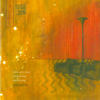 There is something about the way this music sounds that brings back memories of some art long lost in electronic music. There is melody, counterpoint, harmony, rhythms based half way between space and hip-hop, and a completely uplifting feeling throughout. Where We're From... is dance-inspiring, but it isn't a dance record; everything swells and flares slowly, emitting a warm light that radiates for miles around.
There is something about the way this music sounds that brings back memories of some art long lost in electronic music. There is melody, counterpoint, harmony, rhythms based half way between space and hip-hop, and a completely uplifting feeling throughout. Where We're From... is dance-inspiring, but it isn't a dance record; everything swells and flares slowly, emitting a warm light that radiates for miles around.
 It's pretty incredible to hear a keyboardist thrash along with abassist and drummer. It's even more incredible when the keyboardmanages to sound heavier, more melodic, and threatening (all at thesame time) than any guitar could. Groundswellis the debut album from Parts and Labor and to put it simply: it rocks.It's like being strapped into a jet for the first time and beingintroduced to mach-5 and blackouts. Although the keyboard often holdsthe lead role in each song, it's the duo of bassist BJ Warshaw andeither Jim Sykes or Joel Saladino on drums that propel every song intooverdrive. The entire album sounds as if it could've been recorded inan abandoned warehouse somewhere on northern Jersey's shore. The bassis absolutely unhinged, rattling about as if it were on fire and readyto explode. Above it all is an unexpected partner: the keyboardtwirling, performing loops, convulsing, and generally ejaculating overeverything. It serves another role, however: every now and then gentletones and wavering notes will hover over the near-tribal rhythm sectioncreating an odd juxtaposition of sounds that will either producenightmares or light a fire under my ass and send me into thestratosphere. The music isn't particularly violent, but it's LOUD anddetermined to beat the three minute mile. "TB Strut" also happens to beone of the best headbanging songs I've heard, it's just impossible toresist that melody! As a nice little bonus, Parts and Labor haveincluded a video for "Intervention" on the CD (it's also available ontheir website). It's a fun video in a very twisted way. These guys mustbe monstrous live so hopefully they'll expand their tours a bit furtherwest soon.
It's pretty incredible to hear a keyboardist thrash along with abassist and drummer. It's even more incredible when the keyboardmanages to sound heavier, more melodic, and threatening (all at thesame time) than any guitar could. Groundswellis the debut album from Parts and Labor and to put it simply: it rocks.It's like being strapped into a jet for the first time and beingintroduced to mach-5 and blackouts. Although the keyboard often holdsthe lead role in each song, it's the duo of bassist BJ Warshaw andeither Jim Sykes or Joel Saladino on drums that propel every song intooverdrive. The entire album sounds as if it could've been recorded inan abandoned warehouse somewhere on northern Jersey's shore. The bassis absolutely unhinged, rattling about as if it were on fire and readyto explode. Above it all is an unexpected partner: the keyboardtwirling, performing loops, convulsing, and generally ejaculating overeverything. It serves another role, however: every now and then gentletones and wavering notes will hover over the near-tribal rhythm sectioncreating an odd juxtaposition of sounds that will either producenightmares or light a fire under my ass and send me into thestratosphere. The music isn't particularly violent, but it's LOUD anddetermined to beat the three minute mile. "TB Strut" also happens to beone of the best headbanging songs I've heard, it's just impossible toresist that melody! As a nice little bonus, Parts and Labor haveincluded a video for "Intervention" on the CD (it's also available ontheir website). It's a fun video in a very twisted way. These guys mustbe monstrous live so hopefully they'll expand their tours a bit furtherwest soon.samples:
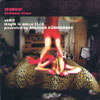 Schmoof are the U.K. duo of Sarah and Lloyd, whose over the top kitsch music is firmly rooted in the style of 70s disco meets 80s synth pop production. I'm usually not one to judge a book (or CD) by its cover, but the pink clad, pixelated figures jumping on a leopard print bedspread on Bedroom Disco doesn't exactly leave too much to the imagination as to the type of music to expect.
Schmoof are the U.K. duo of Sarah and Lloyd, whose over the top kitsch music is firmly rooted in the style of 70s disco meets 80s synth pop production. I'm usually not one to judge a book (or CD) by its cover, but the pink clad, pixelated figures jumping on a leopard print bedspread on Bedroom Disco doesn't exactly leave too much to the imagination as to the type of music to expect.
 Montreal's Soft Canyon are the latest in a recent outcropping of bandsattempting to recreate the power and majesty of 1970's Neil Young-stylepsychedelic-inflected guitar rock. They are also in the unfortunateposition of having named themselves Soft Canyon, a strange choice giventhe fact that Canyon, a Washington D.C. band with a strikingly similarsound, have just recently released their album Empty Roomsto wide critical acclaim. Recording an album inspired by 70's arenarock under such a similar band name makes this Canadian five-piece seema little like copyists, even if they came up with the idea first, whichis doubtful. Furthering their unlucky destiny, their first album Broken Spirit, I Will Mend Your Wings is not nearly as good as Canyon's Empty Rooms,falling far short of the bar set by their obvious influences. Thisincredibly brief album tries and fails to recreate the epic sweep ofNeil Young's Zuma. Their tepid guitar pop has little to offerthe listener, being entirely derivative in a largely uninteresting way.Where Canyon's Empty Rooms was an awe-inspiring set ofmajestic, atmospheric guitar anthems in the mould of "Cortez theKiller", Soft Canyon's Broken Spirit is a snore-inducing half hour ofover-produced, under-written songs that sound more like those late-70'salbums Young phoned in because of contractual obligations. SoftCanyon's vocalist has an annoying, unpolished presence, and the lyricsare lukewarm amalgams of teenage love poetry and fake mysticism. Also,these average pop songs are not given enough room to breathe, mostending before the four-minute mark. Neil Young's spacious,"canyon-esque" guitar solos were the key element in his magical rock n'roll, but the instrumentalists in Soft Canyon are not talented enoughto stand on their own. To cover up for the dearth of musical invention,Broken Spirit's producer has added a number of laughable psychedelicinterludes that seem terribly out of place. By the time I reached thefinal, failed seven-minute epic "We Threw Our Love Into The Universe,"I just wanted to hear the other, superior Canyon. Soft Canyon need togo back to the drawing board for their next record, or they run therisk of creating another disposable cliché of an album destined to beunfavorably compared to their American counterparts.
Montreal's Soft Canyon are the latest in a recent outcropping of bandsattempting to recreate the power and majesty of 1970's Neil Young-stylepsychedelic-inflected guitar rock. They are also in the unfortunateposition of having named themselves Soft Canyon, a strange choice giventhe fact that Canyon, a Washington D.C. band with a strikingly similarsound, have just recently released their album Empty Roomsto wide critical acclaim. Recording an album inspired by 70's arenarock under such a similar band name makes this Canadian five-piece seema little like copyists, even if they came up with the idea first, whichis doubtful. Furthering their unlucky destiny, their first album Broken Spirit, I Will Mend Your Wings is not nearly as good as Canyon's Empty Rooms,falling far short of the bar set by their obvious influences. Thisincredibly brief album tries and fails to recreate the epic sweep ofNeil Young's Zuma. Their tepid guitar pop has little to offerthe listener, being entirely derivative in a largely uninteresting way.Where Canyon's Empty Rooms was an awe-inspiring set ofmajestic, atmospheric guitar anthems in the mould of "Cortez theKiller", Soft Canyon's Broken Spirit is a snore-inducing half hour ofover-produced, under-written songs that sound more like those late-70'salbums Young phoned in because of contractual obligations. SoftCanyon's vocalist has an annoying, unpolished presence, and the lyricsare lukewarm amalgams of teenage love poetry and fake mysticism. Also,these average pop songs are not given enough room to breathe, mostending before the four-minute mark. Neil Young's spacious,"canyon-esque" guitar solos were the key element in his magical rock n'roll, but the instrumentalists in Soft Canyon are not talented enoughto stand on their own. To cover up for the dearth of musical invention,Broken Spirit's producer has added a number of laughable psychedelicinterludes that seem terribly out of place. By the time I reached thefinal, failed seven-minute epic "We Threw Our Love Into The Universe,"I just wanted to hear the other, superior Canyon. Soft Canyon need togo back to the drawing board for their next record, or they run therisk of creating another disposable cliché of an album destined to beunfavorably compared to their American counterparts.samples:
 After a couple years of hiatus, degrouping and regrouping, John Waters'favorite surrealistic futuristic thrash quartet return with theirlongest album to date. With 23 songs, their debut release for Epitaph'sAnti Records is nearly double the length of their debut and almosteverything else that's emerged from their chrysalis. Credit needs to begiven to the San Diego crew for perhaps being one of the most efficient"rock" groups around, cramming full songs with verses and repeatedchoruses in an astounding amount of time (the longest song that gracesthis record is one second shy of being a minute and a half). The Locusthave clearly passed into a new stage of development. The instrumentalcoordination is top notch, the onslaught is maddening, the coordinationis astounding, and the technological integration is the most prominentas it has ever been. Doctors recommend that adults raise theirheartbeat about 20 minutes every day. At slightly over 20 minutes, Plague Soundscapescan't hurt. Thematically, the Locust has migrated. The subject matterhas gone from the borderline comically ridiculous to new, bizzaredepths far knocking on the outposts of tangible reality. Songs like"Late for a Double Date with a Pile of Atoms in the Water Closet,"where full-throttle belched out lyrics like "Arbiter of shittilyplanned dilemmas, you were born with only three faces," are just anexample of the true verbal surrealism the band practices and has beenperfecting over the years together. Printed lyrics are marginallyhelpful but don't ever count on being able to sing along. The practiceand dedication involved has taken years to perfect and the strain ontheir voices must be taking years off their lives. For those fortunateenough to have their town plagued by The Locust, be warned that theirlive sets rarely stretch longer than 12 minutes, so don't be a fool anduse up your bathroom and bar time in time before their set commences.Inside those 12 minutes is a deafening glare of pure energy, but blinkand it's over. As a bonus, the video for "The Half-Eaten Sausage WouldLike To See You In His Office" is included.
After a couple years of hiatus, degrouping and regrouping, John Waters'favorite surrealistic futuristic thrash quartet return with theirlongest album to date. With 23 songs, their debut release for Epitaph'sAnti Records is nearly double the length of their debut and almosteverything else that's emerged from their chrysalis. Credit needs to begiven to the San Diego crew for perhaps being one of the most efficient"rock" groups around, cramming full songs with verses and repeatedchoruses in an astounding amount of time (the longest song that gracesthis record is one second shy of being a minute and a half). The Locusthave clearly passed into a new stage of development. The instrumentalcoordination is top notch, the onslaught is maddening, the coordinationis astounding, and the technological integration is the most prominentas it has ever been. Doctors recommend that adults raise theirheartbeat about 20 minutes every day. At slightly over 20 minutes, Plague Soundscapescan't hurt. Thematically, the Locust has migrated. The subject matterhas gone from the borderline comically ridiculous to new, bizzaredepths far knocking on the outposts of tangible reality. Songs like"Late for a Double Date with a Pile of Atoms in the Water Closet,"where full-throttle belched out lyrics like "Arbiter of shittilyplanned dilemmas, you were born with only three faces," are just anexample of the true verbal surrealism the band practices and has beenperfecting over the years together. Printed lyrics are marginallyhelpful but don't ever count on being able to sing along. The practiceand dedication involved has taken years to perfect and the strain ontheir voices must be taking years off their lives. For those fortunateenough to have their town plagued by The Locust, be warned that theirlive sets rarely stretch longer than 12 minutes, so don't be a fool anduse up your bathroom and bar time in time before their set commences.Inside those 12 minutes is a deafening glare of pure energy, but blinkand it's over. As a bonus, the video for "The Half-Eaten Sausage WouldLike To See You In His Office" is included.samples:
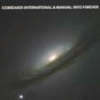 Resident Morr space cadets Manual (Jonas Munk) and IcebreakerInternational (Alexander Perls) have teamed up to produce this firstrelease for Morr Music's sub-label Sound of a Handshake. Thiscollaboration was hinted at last year on the Morr compilation/Slowdivetribute Blue Skied an' Clear,to which Manual and Icebreaker contributed this record's title piece.They expand the project to eight songs here which if you lied to me andtold me the songs were purely Manual solo works, I would readilybelieve you. Manual trades in atmospheric guitar works to which he addssubtle electronics and melodic undertones, while Icebreaker createsconcept albums which sound a slightly more abstract branch of the PianoMagic school. The opener, "The Countdown," features Manual's signaturewarbly guitar lines understated by a metronomic beat in the background.This song in particular peppers and prepares you for the whirling andswirling noises to be expected for the rest of the album. The titletrack, "Into Forever," has this wanky guitar part which harks back tosome lost remix of a Sting song from his adult contemporary days(perhaps circa "Ten Summoner's Tales" or "Soul Cages") and is reallythe only objectionable song on the album. Curiously, it was the songincluded on the Slowdive tribute, yet I have trouble seeing howSlowdive contributed to or inspired the song. Icebreaker makes itssound known slightly in "The Inner Rings," which begins with an echoingdin of an empty ship hull but rises to a more ecclesiastical or angelicdrone by the end. The highlight of the album has to be "A Turning" (isit a coincidence that all the song titles sound like Brian Enotitles?). The song is a persuasive combination of three chord pickedprogression, Manual's warbly guitar effects, and a haunting and ghostlyvocal wail which fills out the song's substance. "The Outer Rings" onceagain showcases Icebreaker's sound and makes you begin to think thatPerls is responsible soley for the ring cycle on this album, whereasmost of the other contributions are strictly Munk's. This is certainlytrue for "Beacon," which sounds as if it was lifted directly fromManual's "Ascend" album. I could try and tell you about the outer spaceinfinite music loop concept prepared (conceivably by Icebreaker) forthis album, but it's pure fantasy and adds nothing to the music itself.Better to enjoy these songs for their terrestrial charms.
Resident Morr space cadets Manual (Jonas Munk) and IcebreakerInternational (Alexander Perls) have teamed up to produce this firstrelease for Morr Music's sub-label Sound of a Handshake. Thiscollaboration was hinted at last year on the Morr compilation/Slowdivetribute Blue Skied an' Clear,to which Manual and Icebreaker contributed this record's title piece.They expand the project to eight songs here which if you lied to me andtold me the songs were purely Manual solo works, I would readilybelieve you. Manual trades in atmospheric guitar works to which he addssubtle electronics and melodic undertones, while Icebreaker createsconcept albums which sound a slightly more abstract branch of the PianoMagic school. The opener, "The Countdown," features Manual's signaturewarbly guitar lines understated by a metronomic beat in the background.This song in particular peppers and prepares you for the whirling andswirling noises to be expected for the rest of the album. The titletrack, "Into Forever," has this wanky guitar part which harks back tosome lost remix of a Sting song from his adult contemporary days(perhaps circa "Ten Summoner's Tales" or "Soul Cages") and is reallythe only objectionable song on the album. Curiously, it was the songincluded on the Slowdive tribute, yet I have trouble seeing howSlowdive contributed to or inspired the song. Icebreaker makes itssound known slightly in "The Inner Rings," which begins with an echoingdin of an empty ship hull but rises to a more ecclesiastical or angelicdrone by the end. The highlight of the album has to be "A Turning" (isit a coincidence that all the song titles sound like Brian Enotitles?). The song is a persuasive combination of three chord pickedprogression, Manual's warbly guitar effects, and a haunting and ghostlyvocal wail which fills out the song's substance. "The Outer Rings" onceagain showcases Icebreaker's sound and makes you begin to think thatPerls is responsible soley for the ring cycle on this album, whereasmost of the other contributions are strictly Munk's. This is certainlytrue for "Beacon," which sounds as if it was lifted directly fromManual's "Ascend" album. I could try and tell you about the outer spaceinfinite music loop concept prepared (conceivably by Icebreaker) forthis album, but it's pure fantasy and adds nothing to the music itself.Better to enjoy these songs for their terrestrial charms.samples:
 Post-industrial music is about as loosely defined as a genre can get,and with artists ranging from the beat-driven cacophony of SomaticResponses and Venetian Snares to the electro experiments of Lusine ICLand Starfish Pool, Hymen Records has managed to stay within itsboundaries. At one time, the same could be said for Substanz-T, whosetrack "Industrial Music for Industrial People" reminded us that "if youdon't like fascism, don't play industrial music." As the jazzy, urbanvibes of their Hymen debut Tripped Experiences and their latest longplayer Electric Opiumsuggest, the Frankfurt duo have either developed a dislike for saidphilosophy, or simply grew up. While their so-called peers are contentto remain stagnant in black make-up and fishnets, Substanz-T have optedout in order to create their downtempo gems. On their latest disc, theyhave collaborated on multiple tracks with former Einsturzende Neubautenmember F.M. Einheit, another musician who has moved past the clang andbang of gloomy industrial music. Electric Opium shifts theirsound further away from the Kruder and Dorfmeister school of cool,resulting in a musical work both percussive and pensive. The overallmood is decidedly ambient, whether on the Basic Channel influenced"Steer The Stars," or the intelligent hip hop of "Place Cells." TheNinja Tune-worthy, echo-heavy soundtrack of "Rekall" is only furtheraccented by the clever use of theramin, and the track best representsthe collaborative spirit of the album. "Ubique" holds true to theessence of chillout originators such as The Orb over its 18 minutes ofsoft cinematic synth washes, crackling percussion, and ultra-minimalspecks of audio dirt. To call Electric Opium ideal for Sundaylistening would not do it justice. To call it an album that grows onyou would be and out-and-out insult. In all honesty, this is truly apainstakingly constructed collection of songs with more than its fairshare of nuances and studio-crafted subtlety. Goodbye post-industrial.Hello new ambient.
Post-industrial music is about as loosely defined as a genre can get,and with artists ranging from the beat-driven cacophony of SomaticResponses and Venetian Snares to the electro experiments of Lusine ICLand Starfish Pool, Hymen Records has managed to stay within itsboundaries. At one time, the same could be said for Substanz-T, whosetrack "Industrial Music for Industrial People" reminded us that "if youdon't like fascism, don't play industrial music." As the jazzy, urbanvibes of their Hymen debut Tripped Experiences and their latest longplayer Electric Opiumsuggest, the Frankfurt duo have either developed a dislike for saidphilosophy, or simply grew up. While their so-called peers are contentto remain stagnant in black make-up and fishnets, Substanz-T have optedout in order to create their downtempo gems. On their latest disc, theyhave collaborated on multiple tracks with former Einsturzende Neubautenmember F.M. Einheit, another musician who has moved past the clang andbang of gloomy industrial music. Electric Opium shifts theirsound further away from the Kruder and Dorfmeister school of cool,resulting in a musical work both percussive and pensive. The overallmood is decidedly ambient, whether on the Basic Channel influenced"Steer The Stars," or the intelligent hip hop of "Place Cells." TheNinja Tune-worthy, echo-heavy soundtrack of "Rekall" is only furtheraccented by the clever use of theramin, and the track best representsthe collaborative spirit of the album. "Ubique" holds true to theessence of chillout originators such as The Orb over its 18 minutes ofsoft cinematic synth washes, crackling percussion, and ultra-minimalspecks of audio dirt. To call Electric Opium ideal for Sundaylistening would not do it justice. To call it an album that grows onyou would be and out-and-out insult. In all honesty, this is truly apainstakingly constructed collection of songs with more than its fairshare of nuances and studio-crafted subtlety. Goodbye post-industrial.Hello new ambient.samples:
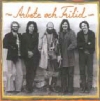 For a thirty-year-old record to still sound ahead of its time is quitea feat. Arbete & Fritid are one of few bands lucky enough to becalled legends. That they were Swedish is incidental, and to try andcategorize the music they made is a futile pursuit. Their liveperformances were not to be missed, as they could easily shift from onemusical language to another, crossing styles and genres jazz and rockbut always with a folk base. Listening to this, their third album,today is like opening a time capsule and hearing a Nordic folk bandthat could have recorded this music fifteen minutes ago. The reissuealso includes a rare bonus track, recorded for Swedish National Radio,that shows the band in their best light. The CD on a whole is like onebig wedding party: there's the bachelor party on "Gånglåt efter LejsmePer Larsson, Malung," a ribald gyration but all in all suave andsoaring presence of an album opener; the tryst of "Elâzig-dans," wherethe lovers dance for the world to see, and profess their undyingdevotions to each other; and then the album moves its way through thewedding march and on to the reception. There are a few exceptions tothis general mood, such as the dark brooding feel of "The EuropeanWay," and the pure feral angst of "Petrokemi Det Kan Man Inte BadaI"—my favorite due to the saxophones and throated chants. I hear thestrains of countless bands of today in this sound. For the most part,though, this is a classic, gorgeous record that presents a range ofemotions anyone can identify with, despite an inability to understandthe words, the titles, or read the liner notes.
For a thirty-year-old record to still sound ahead of its time is quitea feat. Arbete & Fritid are one of few bands lucky enough to becalled legends. That they were Swedish is incidental, and to try andcategorize the music they made is a futile pursuit. Their liveperformances were not to be missed, as they could easily shift from onemusical language to another, crossing styles and genres jazz and rockbut always with a folk base. Listening to this, their third album,today is like opening a time capsule and hearing a Nordic folk bandthat could have recorded this music fifteen minutes ago. The reissuealso includes a rare bonus track, recorded for Swedish National Radio,that shows the band in their best light. The CD on a whole is like onebig wedding party: there's the bachelor party on "Gånglåt efter LejsmePer Larsson, Malung," a ribald gyration but all in all suave andsoaring presence of an album opener; the tryst of "Elâzig-dans," wherethe lovers dance for the world to see, and profess their undyingdevotions to each other; and then the album moves its way through thewedding march and on to the reception. There are a few exceptions tothis general mood, such as the dark brooding feel of "The EuropeanWay," and the pure feral angst of "Petrokemi Det Kan Man Inte BadaI"—my favorite due to the saxophones and throated chants. I hear thestrains of countless bands of today in this sound. For the most part,though, this is a classic, gorgeous record that presents a range ofemotions anyone can identify with, despite an inability to understandthe words, the titles, or read the liner notes.samples:
 Former D Generation frontman Jesse Malin is an odd mix of Bob Dylan,Mark Knopfler, and Neil Young in the vocal department, and on his debutsolo album, he shows he's straying further and further from his punkrock roots to become a roots rock punk. With frequent cohort Ryan Adamsat the knobs and sliders and on electric guitar, Malin is free to letout his more troubadour tendencies, spinning yarns of lost love anddying dreams. For the most part, the formula works just as long as youcan get past Malin's aforementioned voice and some occasional triteimagery, mostly involving the repeated mention of cigarettes. On thecover, Malin projects the image and feel this album most embodies: asubway performer, strumming away on his acoustic guitar, begging peopleto throw him a couple quarters. He's that unlucky sap with an openguitar case and a Yamaha acoustic, track after track, waiting for hisluck to change rather than try and change it himself. Even though itrocks out here and there, like on "Wendy," and "High Lonesome," thereis an overwhelming emptiness and depression throughout the record.Malin is here, warts and all, including the most awful vocal momentsimaginable in places ("Solitaire" with its strained wails), anddecidedly low production values. He paints a picture of New York Cityfrom the dim side, where people are down on their luck, can't evenafford a beer, and just want someone to notice. It's not a new theme,not a new approach, and Malin's not a new voice; but it's still apretty good debut, with some varied flavors, and he occasionally hintsat a grandeur that might rival New Jersey's favorite son someday.
Former D Generation frontman Jesse Malin is an odd mix of Bob Dylan,Mark Knopfler, and Neil Young in the vocal department, and on his debutsolo album, he shows he's straying further and further from his punkrock roots to become a roots rock punk. With frequent cohort Ryan Adamsat the knobs and sliders and on electric guitar, Malin is free to letout his more troubadour tendencies, spinning yarns of lost love anddying dreams. For the most part, the formula works just as long as youcan get past Malin's aforementioned voice and some occasional triteimagery, mostly involving the repeated mention of cigarettes. On thecover, Malin projects the image and feel this album most embodies: asubway performer, strumming away on his acoustic guitar, begging peopleto throw him a couple quarters. He's that unlucky sap with an openguitar case and a Yamaha acoustic, track after track, waiting for hisluck to change rather than try and change it himself. Even though itrocks out here and there, like on "Wendy," and "High Lonesome," thereis an overwhelming emptiness and depression throughout the record.Malin is here, warts and all, including the most awful vocal momentsimaginable in places ("Solitaire" with its strained wails), anddecidedly low production values. He paints a picture of New York Cityfrom the dim side, where people are down on their luck, can't evenafford a beer, and just want someone to notice. It's not a new theme,not a new approach, and Malin's not a new voice; but it's still apretty good debut, with some varied flavors, and he occasionally hintsat a grandeur that might rival New Jersey's favorite son someday.samples:



